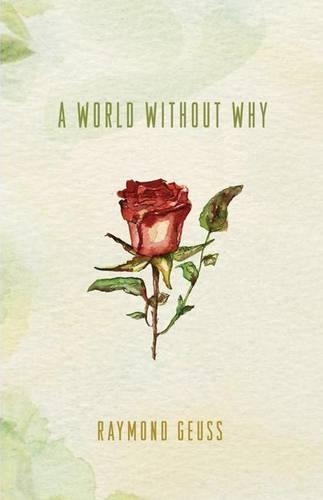
A World without Why
(Hardback)
Available Formats
Publishing Details
A World without Why
By (Author) Raymond Geuss
Princeton University Press
Princeton University Press
28th April 2014
United States
Classifications
Tertiary Education
Non Fiction
Social and political philosophy
170
Physical Properties
Hardback
288
Width 140mm, Height 216mm
425g
Description
Wishful thinking is a deeply ingrained human trait that has had a long-term distorting effect on ethical thinking. Many influential ethical views depend on the optimistic assumption that, despite appearances to the contrary, the human and natural world in which we live could, eventually, be made to make sense to us. In A World without Why, Raymond Geuss challenges this assumption. The essays in this collection--several of which are published here for the first time--explore the genesis and historical development of this optimistic configuration in ethical thought and the ways in which it has shown itself to be unfounded and misguided. Discussions of Greco-Roman antiquity and of the philosophies of Socrates, Plato, Hegel, Marx, Nietzsche, and Adorno play a central role in many of these essays. Geuss also ranges over such topics as the concepts of intelligibility, authority, democracy, and criticism; the role of lying in politics; architecture; the place of theology in ethics; tragedy and comedy; and the struggle between realism and our search for meaning. Characterized by Geuss's wide-ranging interests in literature, philosophy, and history, and by his political commitment and trenchant style, A World without Why raises fundamental questions about the viability not just of specific ethical concepts and theses, but of our most basic assumptions about what ethics could and must be.
Reviews
"Geuss is a unique voice in contemporary philosophy, and this book is ideal for anyone interested in intellectual history."--David Gordon, Library Journal "In A World Without Why, Raymond Geuss brings his caustic intelligence to many of themes and figures that have occupied his career."--Alex Sager, Marx & Philosophy "In these 13 essays, well-known critical philosopher Geuss ranges over a very wide field of topics--politics, ethics, cultural formations, history, ancient literary and philosophical works, and criticism itself... [S]tudents can read some of these essays with profit, such as the discussion of when obscurity of speech might be best."--Choice "This book leaves a lasting impression. Geuss is a great writer and a very thoughtful human being who has resisted quite valiantly the conventions of his discipline and his times. This is no 'grim' outlook at all, but rather hopeful, and one can only hope that Geuss himself agrees."--Laurie M. Johnson, European Legacy
Author Bio
Raymond Geuss is professor of philosophy at the University of Cambridge. His books include "Politics and the Imagination" and "Philosophy and Real Politics" (both Princeton).
